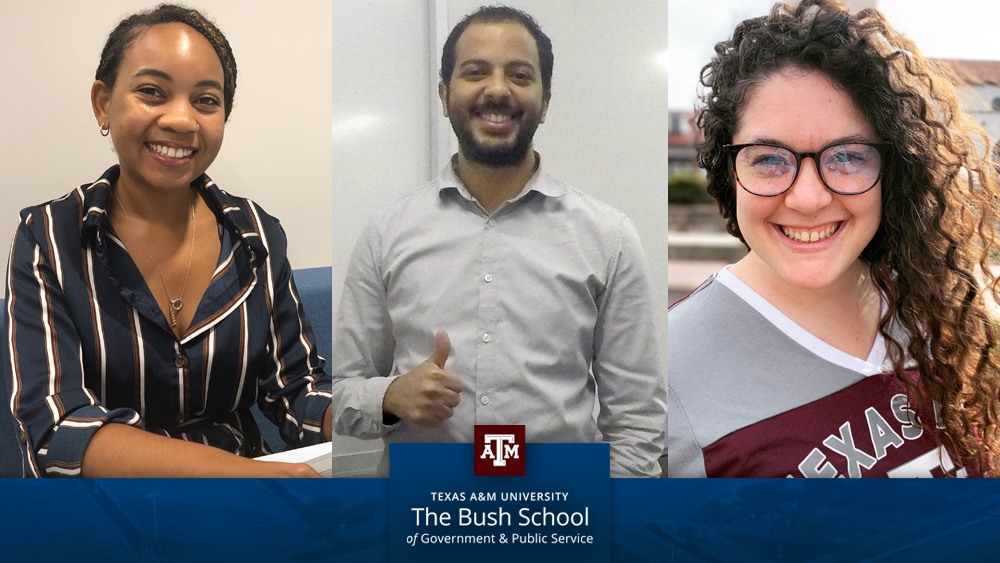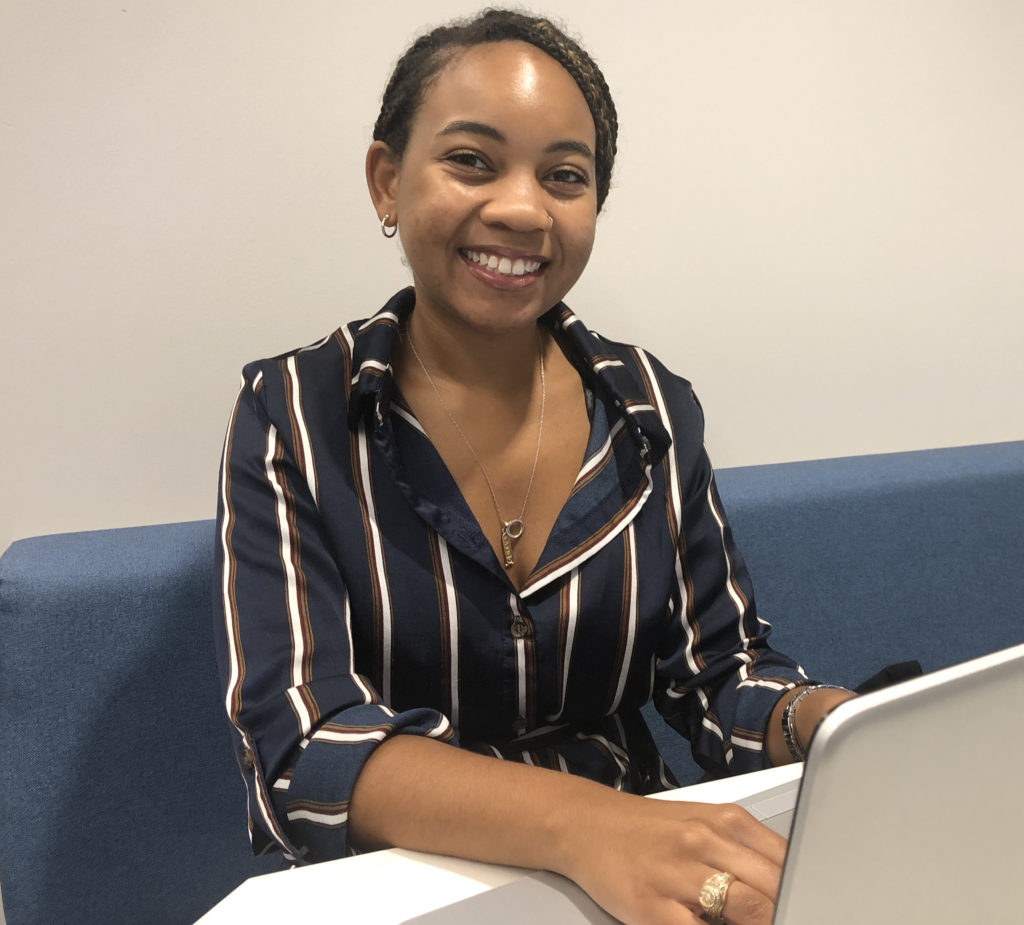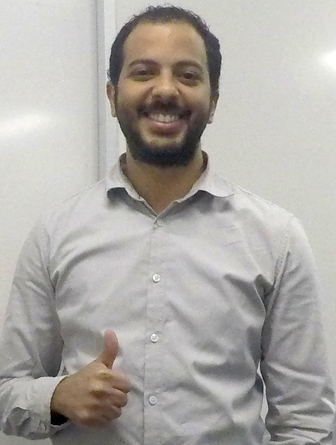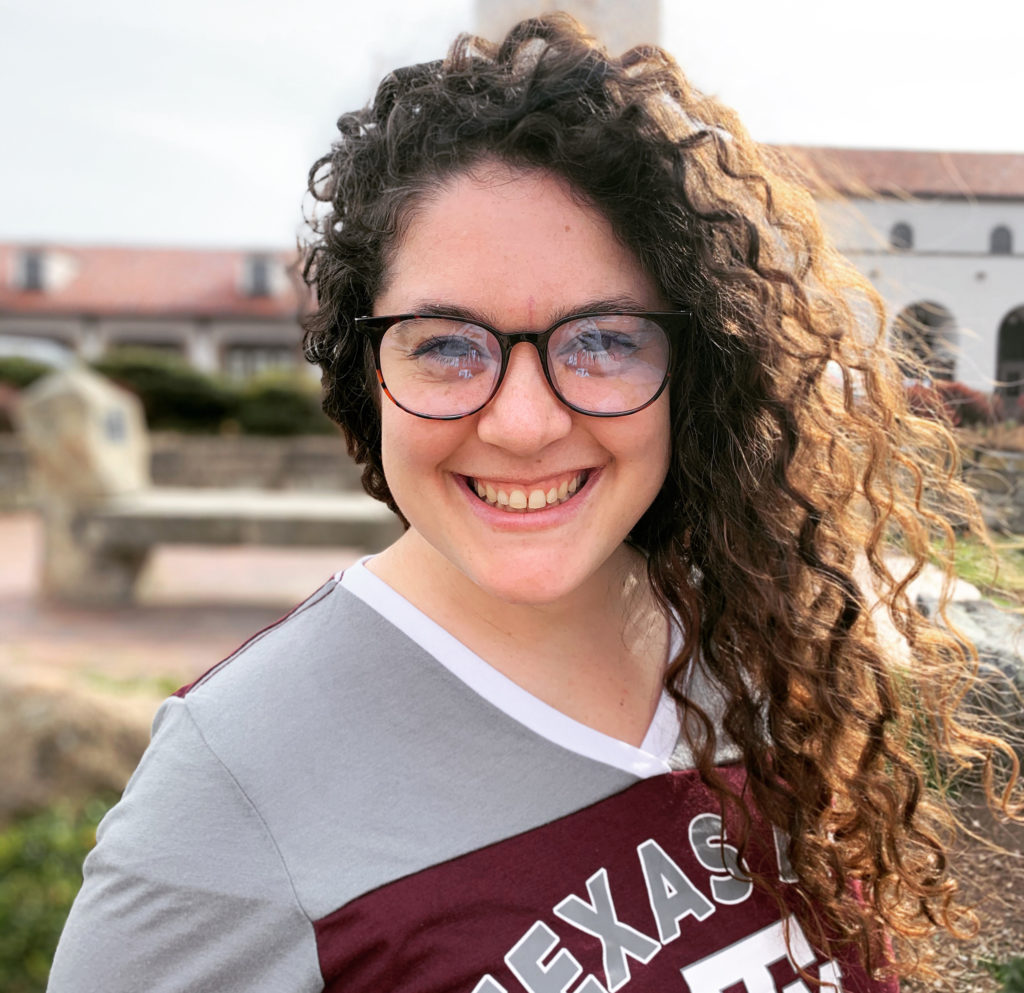
The Bush School has changed since March of 2020. But its core values, and the students and faculty that exemplify them, remain the same.
By Micaela Burrow
Students cluster around study tables in the common areas of the Allen Building for the first time since the building underwent renovations in spring of 2020. Hallways echo with clanking heels and clear voices, filling space that during the first eighteen months of the COVID-19 pandemic held only silence.
“We’re experiencing it for the first time,” said Robyn Battles, referring to her fellow master’s students in their second and final year at the Bush School. “Academically we’re second-years, but in some aspects, it feels like we’re first-years. We’re getting to enjoy the space for the first time, see professors, plan events, and hang out with each other.”
Same faces, new places
Texas A&M University transitioned to virtual education in March 2020 to accommodate safety protocols required for the prevention of COVID-19 spread. While the University implemented hybrid education for the 2020-2021 academic year, social distancing measures and lack of in-person extracurricular activities meant even students who physically attended class did not linger in the Allen building.

“Academically we’re second-years, but in some aspects, it feels like we’re first-years. We’re getting to enjoy the space for the first time, see professors, plan events, and hang out with each other.”
-Robyn Battles, Second-Year MIA Student
Others, like Abdel Taha, then a first-year student in the Master of International Affairs (MIA) program, never set foot in the building at all.
“The time difference was the biggest challenge,” said Taha. “I was up until 3:30 a.m. sometimes.” Attending Bush School classes via Zoom from his home in Egypt was “difficult” according to Taha. It upset his daily schedule. And “Zoom fatigue,” compounded with the early-morning-induced mental haze, diminished the quality of his participation.
But the Bush School made it work, according to Taha. “I appreciate how flexible the School was and how professors tried their best,” he continued.
College Station residents also felt a change in how they went about their studies. Battles compared in-person and virtual experiences working on class projects. “The other day, we needed to talk about an assignment, and we were able to just meet after class and talk. If we had the same kind of discussion last year, we had to send out a Zoom link and find time in everyone’s schedule.”
The virtual format did create avenues of participation for some who might not have been able to manage graduate studies alongside their personal and/or work commitments. And for those who could, Zoom still made certain things easier. Emilee Pugh Bell, a Master of Public Service and Administration (MPSA) student, explained:
“It helped me focus. It made study groups more accessible when we did have them—you just had to send a link. It was pretty inclusive that way.”
For example, her professors would hold open office hours with everyone in the class. “You were able to hear questions from everyone else to learn from them. It was a more collaborative form of learning,” she said.
“Spectacular” online options
As faculty and students adjusted to remote learning, the Bush School continued to expand its options for students of all backgrounds and education needs. In 2021, the Bush School created the Certificate in Geospatial Intelligence jointly with the College of Geosciences as well as the Certificate in Cybersecurity Policy. Each program offers both asynchronous/online and in-residence delivery formats.

“The time difference was the biggest challenge. I appreciate how flexible the School was and how professors tried their best.”
-Abdel Taha, Second-Year MIA Student
Chris Cutrone completed the Certificate in Advanced International Affairs online in 2018. After accumulating twenty years of professional experience in public affairs, Cutrone decided a career change was in order. He now wants to work in geopolitical intelligence. Encouraged by his wife and professors, he enrolled in the full MIA program.
“At first I was disappointed the whole program wasn’t offered online,” he said. As a mid-career professional with a family, a full master’s program strained his time and energy. “But now I see the real value of actually being here in person.”
Cutrone says he doesn’t regret completing the certificate. Since he knocked out twelve of his required hours for the full MIA degree, he now only has to take nine hours each semester. “The online program is structured great, but you don’t get that live interaction” of the in-residence master’s program, he said.
Last week, the Executive Master of Public Service and Administration (EMPSA), a self-paced, online degree program for mid-career professionals who want to advance their public service leadership skills while maintaining their professional careers, held a Residency Week. Students take a break from online coursework to complete a week of intensive class activity at the Bush School.
Xavier Hancock, a police lieutenant in Galveston and EMPSA student, described his experience in the program as “spectacular.” According to Hancock, one of the best aspects of the program is the opportunity for “interacting with world-class faculty and an incredibly talented group of peers.” Even online, he says, the program does an excellent job of fostering collaboration among students and faculty.
Why the Bush School?
Those on traditional degree routes have transitioned back into in-person learning, neutralizing many of the obstacles to engagement associated with learning in a virtual environment. But classroom climate remains a priority for students.
“I really appreciate how respectful classmates are in discussions,” said Battles. “It’s easy to argue the points, walk away, and still be friends with people, even though you have different beliefs. That’s good practice for going into the workforce.”
Battles chose to attend the Bush School because of its commitment to public service: “That’s something that’s really important to me, so it was important to have a school that represented my values as well.”
Bell concurred. “I love our founding principles. I came because they emphasized service. That’s something I’ve seen among the students and staff here, and that’s something I really appreciate,” she said.
Whether taking time away from their professional careers, like Cutrone, who commutes three hours each day to class, or attending class online while the rest of their family sleeps, students are making sacrifices to invest in a Bush School education.
“All of the professors have been great,” said Cutrone. They’ve been very accommodating to me as a mid-career professional. I’m lucky to have Professor Olson as my academic advisor. He really is excited that somebody like me is willing to take the plunge.”

“I love our founding principles. I came (to the Bush School) because they emphasized service. That’s something I’ve seen among the students and staff here, and that’s something I really appreciate.”
-Emilee Pugh Bell, Second-Year MPSA Student
Several students cited the Bush School’s unique blend of academics and practitioners on the faculty that exposes learners to a holistic educational experience. As Naval lieutenant Zack Callahan, MIA, put it, studying at the Bush School involves “applying the academic lens to what it means to learn to be a professional.”
According to Kali Mueller, MIA student and former linguist for the U.S. Army, “If you really want to understand as much about the job you’re getting into as possible, this is the school to come to.”
For Bell, it was the possibility of cross-disciplinary course options that enabled her to marry her passion for women’s causes and need to improve her data analysis skills. Both Callahan and Stephen Chang, an EMPSA student and communications director for the Texas General Land Office under Commissioner George P. Bush, relayed a desire to have the knowledge to explain to employees and subordinates why their work matters.
“It’s my hope that, as a leader who is attending the Bush School, what I learn here will help me to instill in my team the importance of public service,” said Chang.
Making the most of this semester
COVID-19 continues to infect people across the United States. Students recognize that back-to-normal may not happen linearly, and normal may look different when it arrives. Nevertheless, they want to incorporate the lessons of the past year and a half into their participation today at the Bush School.
“I worry that we’ve been siloed for so long that it’s easy to stay that way,” said Bell. “Even though there are still steps we need to take to keep everyone safe, there are still opportunities to connect with each other, and we should take those.”
Mueller said this year’s cohort at the Bush School is making the most of those opportunities. “In terms of the little we’ve been able to do, everyone is inclusive and wants to do things as a group. They just want everyone to feel like they’re part of a little family.”
When asked if the Bush School feels like a family to her, Mueller responded, “Yes, it does.”
